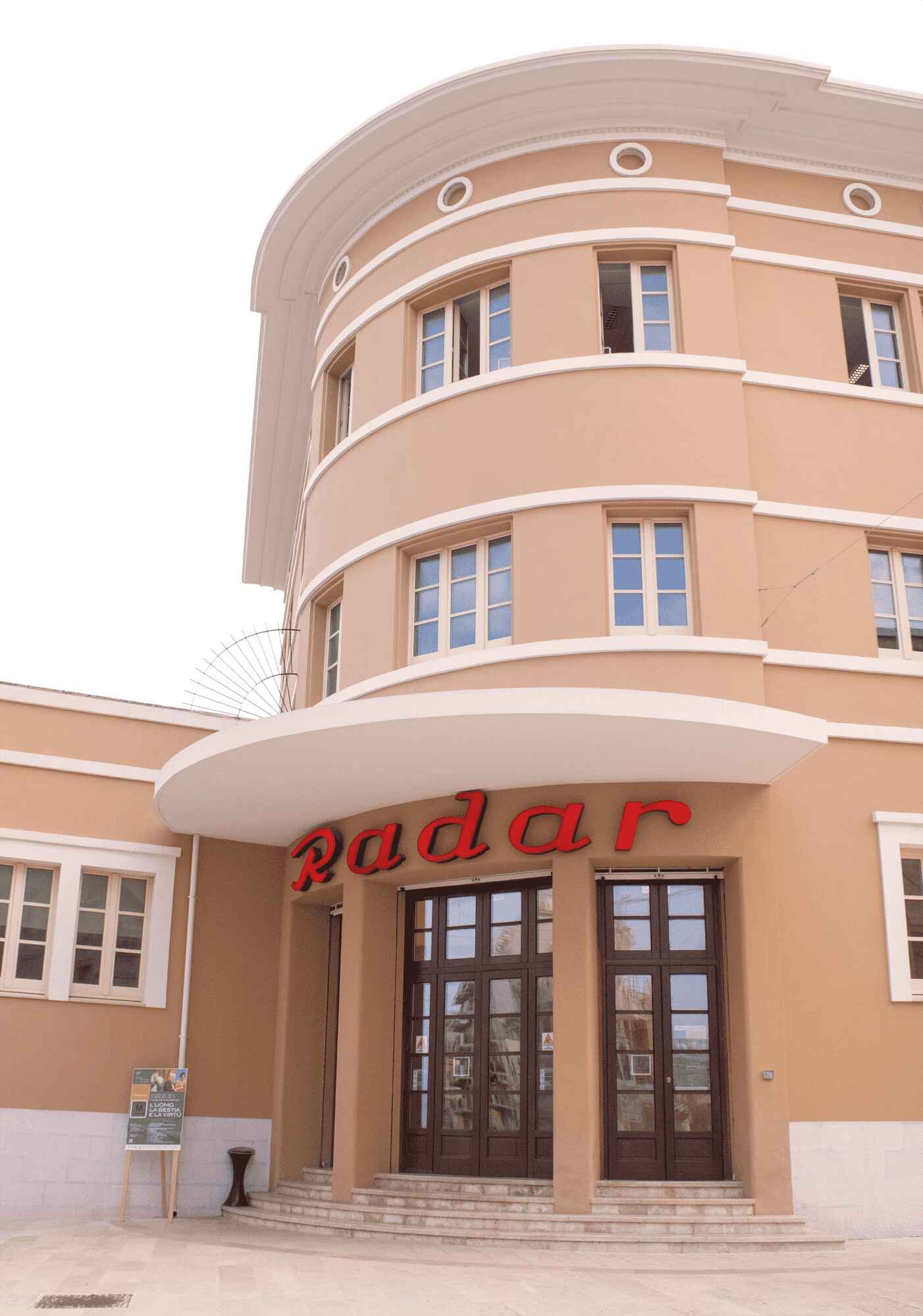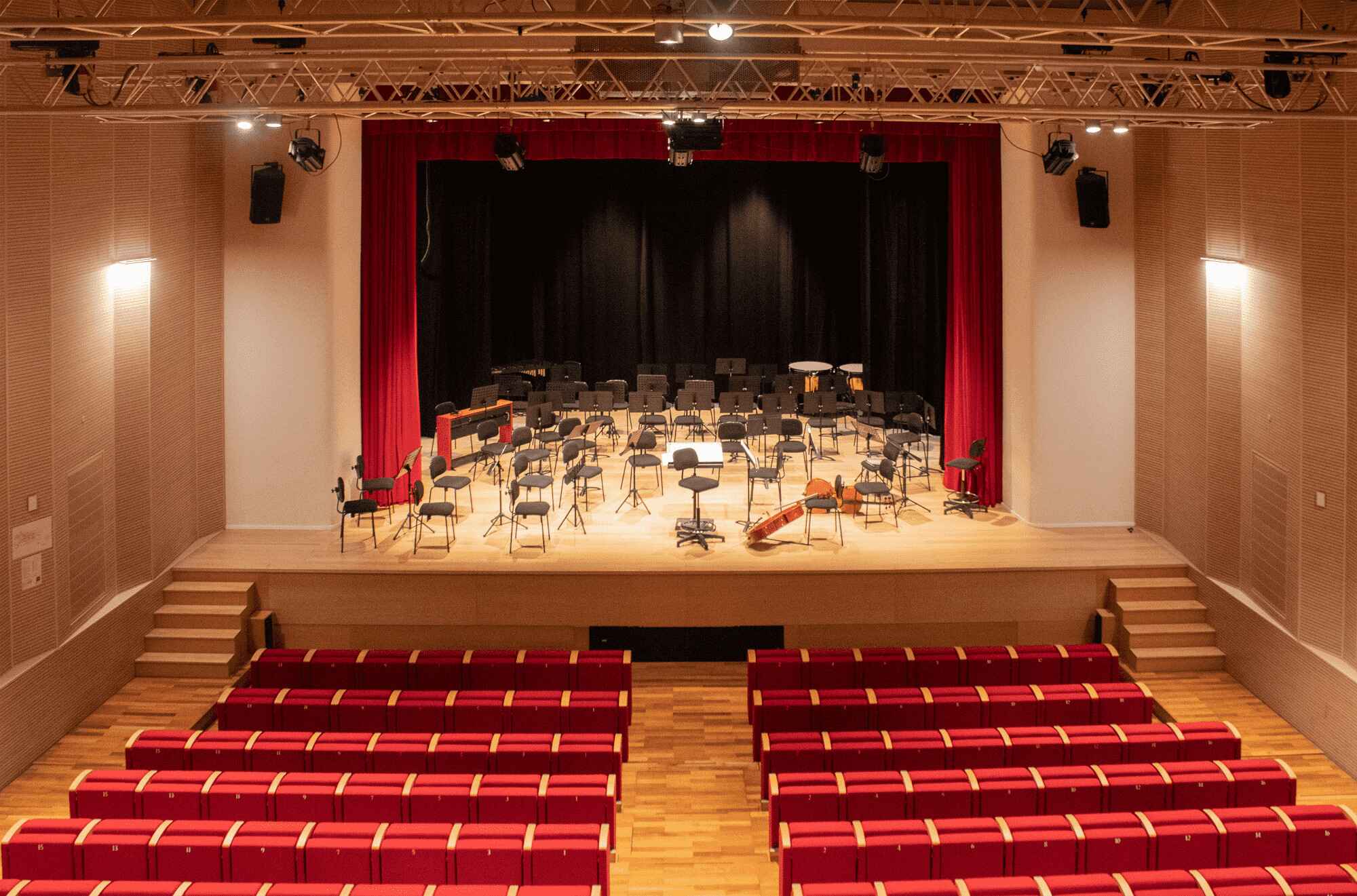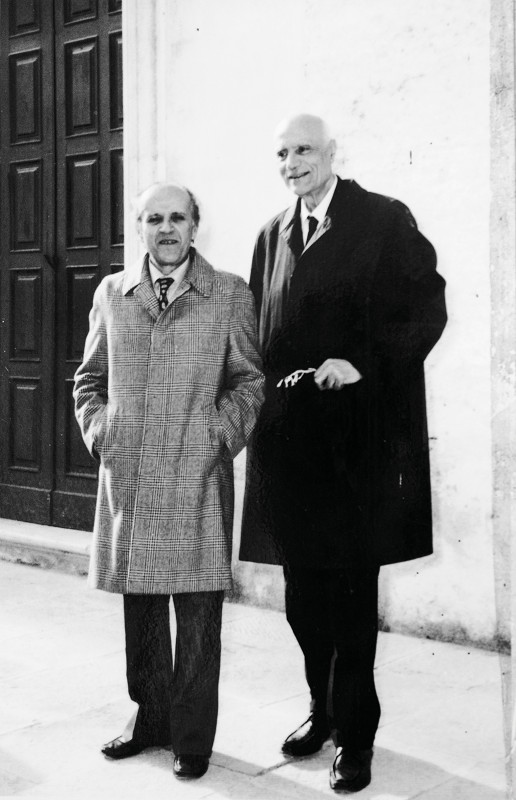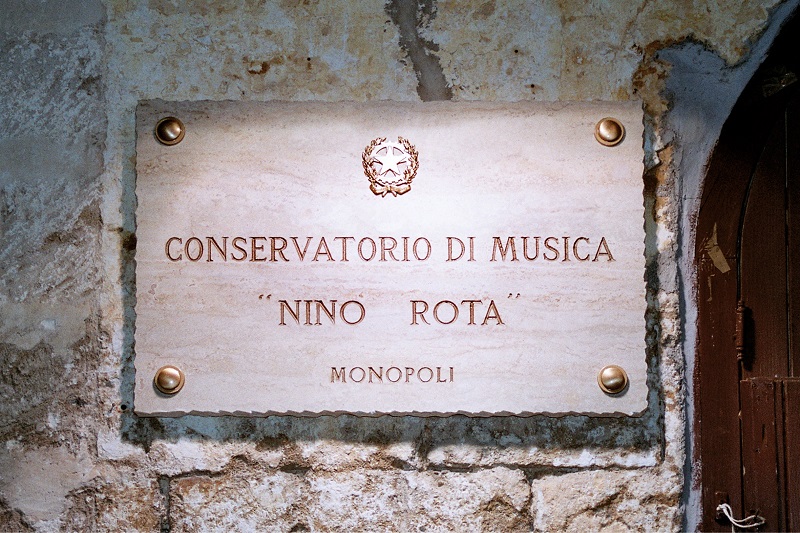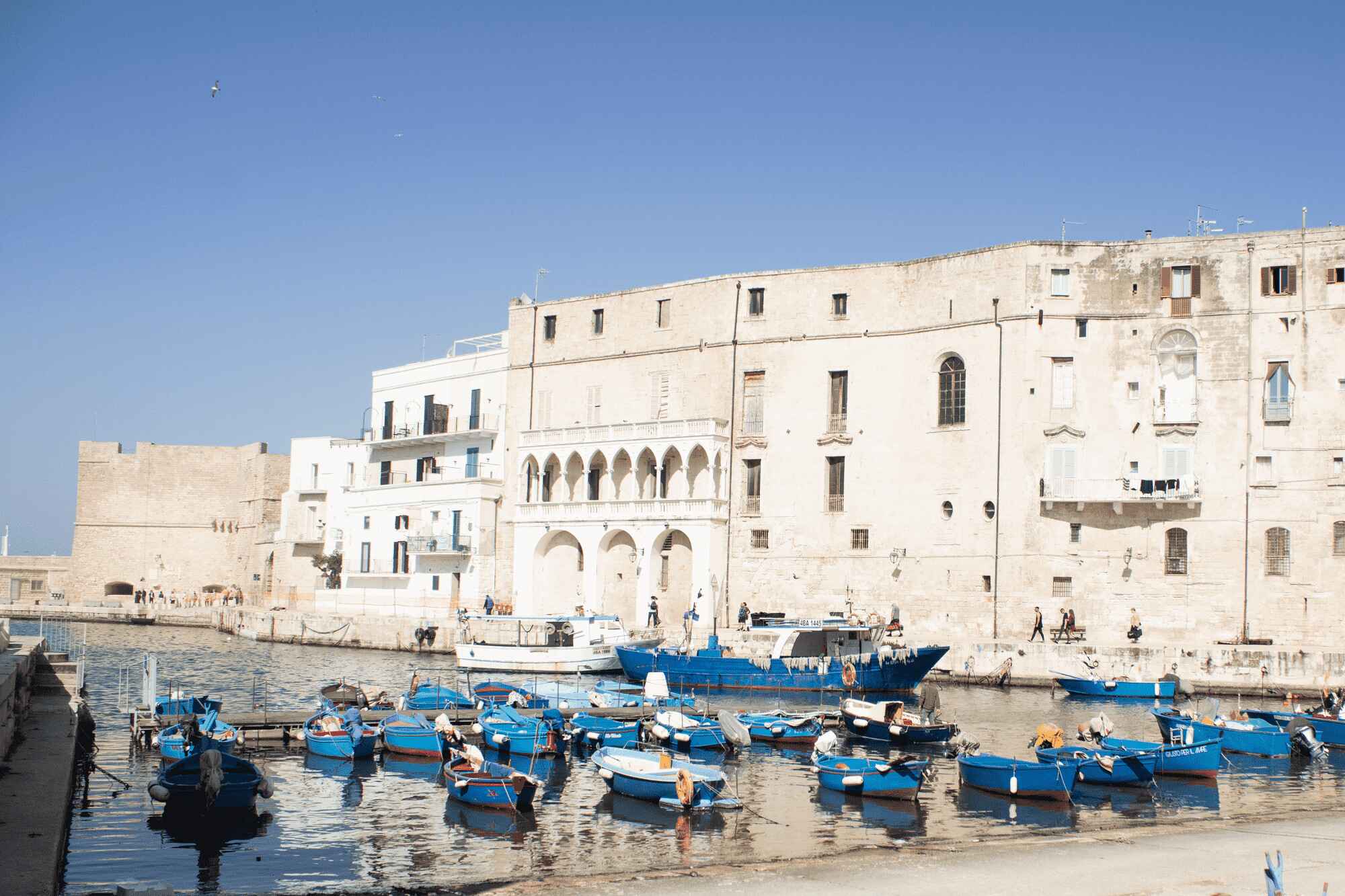The History
The ‘Nino Rota’ Conservatoire in Monopoli was founded on 1 October 1971 as a secondary school annexed to and a branch of the ‘Niccolò Piccinni’ Conservatoire of Music in Bari, at that time directed by the renowned composer Nino Rota, with the strong support of Senator Luigi Russo from Monopoli himself, a fine art and music lover and friend of Nino Rota and of the composer Orazio Fiume.
In 1979, following his death, the hall of the then Conservatoire was named after Nino Rota. To this day, the marble plaque commemorating his figure as a great protagonist of musical life and an advocate of the promotion of musical studies among young people in Puglia is still preserved there.
(in the picture Maestro Nino Rota and the Senator Luigi Russo)
In 1990, owing to the considerable growth in the number of students enrolled, the Conservatoire moved from its historical premises in Palazzo Martinelli to its current location in the former Monastery of the Friars Minor, in Piazza S. Antonio.
After about thirty years of activity, by Interministerial Decree of 28 December 1999, formalised on 11 April 2000, the Monopoli Conservatoire was granted full institutional autonomy.
In May 2000, Maestro Gianpaolo Schiavo was elected as the first Director of the newly-established Conservatoire; he would remain in office until 31 October 2012, due to the fulfilment of statutory mandates.
In June 2004, 25 years after the composer’s death, the Monopoli Conservatoire was officially named after Nino Rota, on the occasion of a solemn event in the splendid cloister.
In 2022 the Conservatoire celebrated its 50th anniversary: over time this institution has established itself on the Italian and international scene, attracting students from all over Apulia, from other Italian regions and even from foreign countries.
The high level of training achieved is proven by the numerous acknowledgements received by the students at national and international competitions and festivals. Many of them have become first chairs of prestigious orchestras, while others have embarked on international concert careers and we proudly read their names on the concert programmes of the world’s most important concert institutions.
The Conservatoire, being particularly active and dynamic, has, over the years, established a series of relationships with local organisations and associations in order to enhance its value and, at the same time, to expand the opportunities of its students and promote an ever-increasing musical culture.
In order to allow more and more students access to Higher Music Education, the Monopoli Conservatoire has implemented a number of services dedicated to Special Education and aimed at students with specific learning disabilities and other forms of disorder. Each student is, therefore, accompanied and supported at every stage of his or her training by means of specific actions linked to his or her personal needs.
The ‘Nino Rota’ Conservatoire is perfectly integrated in the Erasmus+ network: it has to its credit several bilateral agreements with other European institutions and, from 2019, is also affiliated with Ukrainian and Russian musical institutions.
Students and teachers are encouraged and supported to take advantage of the opportunities offered by international mobility: the fundamental experience of cultural exchange is an invaluable opportunity to train at a high level, to ponder on our education system and to strengthen intercultural awareness and active participation in society.
The Conservatoire of Monopoli is an active member of the European Association of Conservatoires (AEC) and a member of the Working With Music Consortium for the promotion of postgraduate internships in Europe as an important link between education and profession.
We are therefore always ready to welcome enthusiastic young people who want to live an important experience of growth and training in a supportive and inclusive environment.
The Seat
Following the large increase in the school population and the growth in teaching activity, the splendid Palazzo Martinelli, overlooking the old port in the city centre, no longer fulfilled the needs of a rapidly growing institution. To cope with these new requirements, starting from 1990, the Conservatoire moved to a venue no less prestigious and rich in history, the 18th-century monastery of the Friars Minor in Piazza S. Antonio.
The Conservatoire’s main building has a several spaces, namely the former cells of the monastery, used as classrooms. It also has a hall with a large French-style organ from 2011, built by the renowned Zanin company, and an evocative cloister, a symbolic place of the institution, which has always been the stage and setting for plays and concerts.
RADAR Venue
A few steps away from the main premises is the Radar Theatre complex. Dating back to the first half of the 20th century, an offspring of the rationalist culture of the time, and a splendid example of modern architecture, it was – in the past – home to Monopoli’s most important movie theatre, the ‘Cinema Radar’, part of the former Hotel Savoia complex.
The entire building, renovated as of 2015, thanks to an agreement between the Conservatoire, the Municipality of Monopoli and the Ministry of Education, University and Research (MIUR), has been hosting ‘Nino Rota’ students since 2017.
The facility is equipped with 14 classrooms, 2 concert halls, a recording studio and a control room.
The Theatre, which hosts the Conservatoire’s festivals, can seat up to 450 people.
